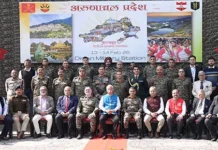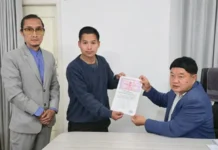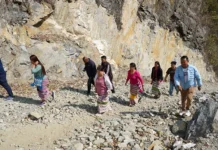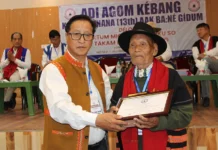NAMSAI, 9 Mar: ICAR- NBPGR Principal Scientist Dr KC Bhatt informed that “many varieties of local crops, wild economic plants, including medicinal and aromatic plants are eroding gradually from different diversity-rich areas, including Arunachal Pradesh due to a variety of factors.”
He said this during the ‘Plant genetics resources conservation awareness workshop’, organized by the Namsai Krishi Vigyan Kendra (KVK) under the ICAR RC for NEH Region, Arunachal Pradesh Centre, Basar, in collaboration with National Bureau of Plant Genetic Resources, New Delhi here in Namsai district on Wednesday.
“As one of the hotspots of biodiversity, the wealth of plant genetics resource available in northeastern hills region needs to be considered and the farmers of the region should be made aware of the importance of plant genetic resources and the need for their conservation,” he said while addressing over 130 farmers from Wagun-I, Mengkhang Khamti and Lekang Khamti, including Aganwadi workers.
ICAR- NBPGR Principal Scientist Dr RS Rathi informed that the ICAR- NBPGR has the world’s second largest Genebank, “where about six lakh samples of different crops and other economic plants are assembled from the country and other countries of the world.”
DHO M Ninu explained about the importance of conservation of horticulture crops, while CDPO W Khimhum and ADO namsai also taught how to protect local varieties of rice, such as the Khamti rice.
Arunachal University of Studies Vice Chancellor Prof B Mohan Kumar appreciated the efforts being made for the conservation of plant genetics resources by the ICAR -NBPGR, New Delhi. He called on the farmers of Namsai district to make efforts in conserving the forest and endangered species of the Khamti and Singpho communities.




